The Paradoxes of Oil as a Guide for Living
The Deeper Meaning of the Chanukah Oil Miracle
- November 29, 2010
- |
- 22 Kislev 5771
Rabbi YY Jacobson
5432 views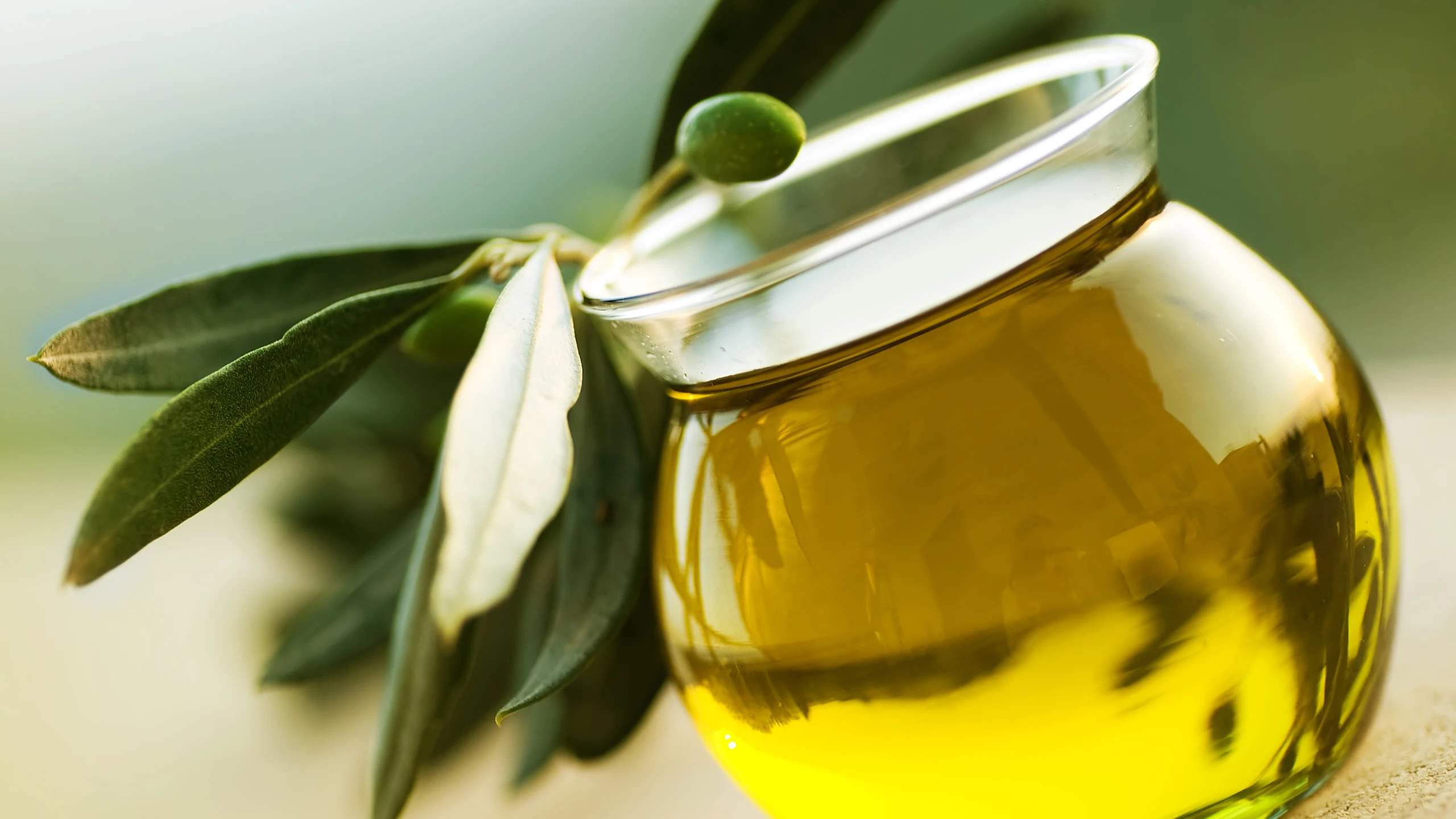

The Paradoxes of Oil as a Guide for Living
The Deeper Meaning of the Chanukah Oil Miracle
Rabbi YY Jacobson
- November 29, 2010
Two Perspectives
Two cowboys come upon an Indian lying on his stomach with his ear to the ground. One of the cowboys stops and says to the other, "You see that Indian?" "Yeah," says the other cowboy. "Look," says the first one, "he's listening to the ground. He can hear things for miles in any direction." Just then the Indian looks up. "Covered wagon," he says, "about two miles away. Have two horses, one brown, one white. Man, woman, child, and household articles in wagon." “Incredible!" says the cowboy to his friend. "This Indian knows how far away they are, how many horses, what color they are, who is in the wagon, and what is in the wagon. Amazing!" The Indian looks up and says, "Ran over me about a half-hour ago."
Why Celebrate Oil?
The kindling of a menorah during the eight days of Chanukah commemorates an ancient miracle that occurred in our Jerusalem Holy Temple, some 2300 years ago. Following the victory of the Jews over their Greek oppressors who desecrated the Temple and attempted to destroy Judaism, a little cruse of unsoiled olive oil found in the Temple lasted and burned for eight days, till the Jews managed to purchase new pure oil for the daily kindling of the Temple Candelabra. To commemorate this display of Divine grace in a world usually enslaved to nature, the sages of Israel instituted the eight-day holiday of Chanukah, in which we kindle a menorah each night.
In that sense, oil embodies the essence of the Chanukah narrative and serves as the main focus of the festival of lights. Indeed, in many a Jewish household, the Chanukah lamps consist of wicks dipped in olive oil, replicating the Temple Menorah lamps. Throughout the holiday we eat various foods soaked in oil, from latkes to donuts (oy, the calories).
This is strange. The miracle of the oil, it would seem, was of minor significance relative to the military victory. Besides the fact that this was a miracle that occurred behind the closed doors of the Temple with only a few priests to behold, it was an event concerning a religious symbol without any consequences on life, death and liberty. If the Jews would have been defeated by the Greeks, there would be no Jews today; if the oil would have not burnt for eight days, so what? The menorah would have not been kindled. Would the latkes taste any worse?
Why did the main focus of the Chanukah become oil?
Many insights have been offered. In this essay, we present a symbolic explanation, relating to the inner psychological universe of man. It is based on a pre-Chanukah letter penned by the Lubavitcher Rebbe in 1947.[1]
Four Qualities of Oil
Olive oil contains four interesting qualities.
A) Olive oil is produced by crushing and beating ripe olives. The olive must be severely “humbled” and pressed in order to emit its oil.
B) Olive Oil, as many other oils extracted from minerals, plants and animals, penetrates solid substances deeply. We all know how difficult it is to remove the oily grease that makes its way into our fingers or our clothes. Various oils have been used throughout history as remedies for bodily wounds and diseases, since oil penetrates the body far beyond its external tissue.
C) Oil does not mix with other liquids. When you attempt to mix, say, oil with water, the oil will remain distinct and will not dissolve in the water.
D) Not only will oil not mix and become dissolved in other liquids, rather staying in place or sinking downward, but furthermore, the oil will rise, floating atop any other liquids.
On a symbolic level, these appear as paradoxical characteristics. Is oil “humble” or “arrogant?” It is beaten badly, yet it rises to the top!
From Spiritual to Physical
In the writings of Jewish Mysticism, all physical properties of any existing object are seen as continuums of their metaphysical properties. Every object originates in the realm of the spirit, embodied by a particular sublime energy. Then the energy evolves to assume a physical reincarnation, giving rise to particular physical characteristics that mirror their spiritual source.
This, parenthetically, constitutes an extremely rich component of Judaism. From the vantage point of Torah, the truths of science, physics, chemistry, biology etc. and the truths of philosophy, spirituality and psychology are merged together in a perfect mosaic, since the physical evolves from the spiritual.
The same principle applies to oil as well. The four above-mentioned qualities displayed in oil are essentially a physical manifestation of four spiritual and psychological attributes from where oil originates. They, in turn, evolve and assume the four physical forms of expression outlined above.
Four Cardinal Principles
In our lives, we must learn how to become “oil”-like. We must learn to cultivate the four properties characterizing oil.
A) The crushing and pressing of the olives, which allows you to become oil, represents the notion of humbleness, the antithesis of arrogance and self-inflation. Seeing ourselves for who we really are, being open to discover our biases, blind spots and errors, allows us to genuinely grow.
B) The direct result of this “pressing” is your ability to become oil-like and, just like oil, penetrate others deeply. When you’re haughty and pompous (usually because of a lack of self-confidence and hence the need to create a delusional self-confidence), you are incapable of sharing yourself with others, or allowing them to share themselves with you. You hide in a bubble, afraid of being vulnerable and authentic. You can’t be in a real relationship. Only when your fake ego is crushed a little bit, either by choice or by life’s circumstances, you have the courage to show up in the world, and to show up to other people, with the real “you.” You can then connect with other people’s hearts profoundly.
C) Humility and genuine relationships must never allow you to be pulled down and completely defined by the relationships. You must never forfeit your individual identity and to dissolve in the emotions or choices of the other person. The beauty and magic of a relationship lay precisely in the fact that two distinct individuals choose to share themselves with each other. Just like oil, you know how to feel and experience another human being deeply, while still not becoming consumed and nullified by the other’s identity. Like oil, you must always retain your distinctiveness.
The holy master Rabbi Menachem Mendel of Kotzk (1787-1859) once remarked: “If I am I because you are you and you are you because I am I, I am not I and you are not you; but if I am I because I am I and you are you because you are you, then I am and you are.” Now we can begin to schmooze.
D) This threefold process of crushing yourself, bonding with others and at the same time retaining your distinctiveness – should ultimately cause you to rise—just like oil—to the top, and “float” head and shoulders above all which is around you. Realizing that you are a “Piece of the Divine,”[2] and that at every moment you are an ambassador of G-d to our world, allows you to experience yourself as invincible, wholesome and way above the gravel that you may encounter in yourself or others. This comes not from arrogance but from realizing that your core is part of the infinite. Just like oil, you, too, rise to the top.
The Talmud states,[3] “The messenger of a person is just like sender.” If G-d chose you and sent you on a mission to this world, you are G-dlike! If you can only identify that space within yourself, nobody can compare to you.
This was the deeper mystical significance of a miracle that caused oil to increase. And it is why we celebrate with focusing on oil, for this story captures the rhythm of life. For me to become a glowing menorah, casting light in me and around me, and lighting up the world, I must be oil-like: First, I must discover the art of humility and integrity; second, I must allow myself to show up in my relationships genuinely and wholesomely; third, I must retain my distinctiveness and individuality; fourth, I must always recognize that part in me which is always “on the top.”
Judaism, particularly its festival of Chanukah, comes to teach ordinary human beings how to become oil-like. If we wish to ignite a fire in our lives, we ought to take a good and deep look at the olive oil in our Menorahs
Happy Chanukah and happy Thanksgiving – let’s go easy on the physical oily foods, but not on the spiritual message of oil.
[1] This essay is based on a letter by the Lubavitcher Rebbe, written on 20 Kislev, 5708 (1947), published in Igros Kodesh vol. 2 page 316. (It is also published in Likkutei sichos vol. 10 p. 293; Shaarei Hamoadim – Chanukah, pp. 172-3.)
[2] Tanya chapter 2.
[3] Kishushin 41a.
- Comment
Class Summary:
Dedicated by David and Eda Schottenstein
In the loving memory of:
Rabbi Levi Yitzchok ben Zalman Yuda Deitsch
and Alta Shula Swerdlov
And in honor of the birth of their daughter
Yetta Alta Shula, "Aliyah"
Two Perspectives
Two cowboys come upon an Indian lying on his stomach with his ear to the ground. One of the cowboys stops and says to the other, "You see that Indian?" "Yeah," says the other cowboy. "Look," says the first one, "he's listening to the ground. He can hear things for miles in any direction." Just then the Indian looks up. "Covered wagon," he says, "about two miles away. Have two horses, one brown, one white. Man, woman, child, and household articles in wagon." “Incredible!" says the cowboy to his friend. "This Indian knows how far away they are, how many horses, what color they are, who is in the wagon, and what is in the wagon. Amazing!" The Indian looks up and says, "Ran over me about a half-hour ago."
Why Celebrate Oil?
The kindling of a menorah during the eight days of Chanukah commemorates an ancient miracle that occurred in our Jerusalem Holy Temple, some 2300 years ago. Following the victory of the Jews over their Greek oppressors who desecrated the Temple and attempted to destroy Judaism, a little cruse of unsoiled olive oil found in the Temple lasted and burned for eight days, till the Jews managed to purchase new pure oil for the daily kindling of the Temple Candelabra. To commemorate this display of Divine grace in a world usually enslaved to nature, the sages of Israel instituted the eight-day holiday of Chanukah, in which we kindle a menorah each night.
In that sense, oil embodies the essence of the Chanukah narrative and serves as the main focus of the festival of lights. Indeed, in many a Jewish household, the Chanukah lamps consist of wicks dipped in olive oil, replicating the Temple Menorah lamps. Throughout the holiday we eat various foods soaked in oil, from latkes to donuts (oy, the calories).
This is strange. The miracle of the oil, it would seem, was of minor significance relative to the military victory. Besides the fact that this was a miracle that occurred behind the closed doors of the Temple with only a few priests to behold, it was an event concerning a religious symbol without any consequences on life, death and liberty. If the Jews would have been defeated by the Greeks, there would be no Jews today; if the oil would have not burnt for eight days, so what? The menorah would have not been kindled. Would the latkes taste any worse?
Why did the main focus of the Chanukah become oil?
Many insights have been offered. In this essay, we present a symbolic explanation, relating to the inner psychological universe of man. It is based on a pre-Chanukah letter penned by the Lubavitcher Rebbe in 1947.[1]
Four Qualities of Oil
Olive oil contains four interesting qualities.
A) Olive oil is produced by crushing and beating ripe olives. The olive must be severely “humbled” and pressed in order to emit its oil.
B) Olive Oil, as many other oils extracted from minerals, plants and animals, penetrates solid substances deeply. We all know how difficult it is to remove the oily grease that makes its way into our fingers or our clothes. Various oils have been used throughout history as remedies for bodily wounds and diseases, since oil penetrates the body far beyond its external tissue.
C) Oil does not mix with other liquids. When you attempt to mix, say, oil with water, the oil will remain distinct and will not dissolve in the water.
D) Not only will oil not mix and become dissolved in other liquids, rather staying in place or sinking downward, but furthermore, the oil will rise, floating atop any other liquids.
On a symbolic level, these appear as paradoxical characteristics. Is oil “humble” or “arrogant?” It is beaten badly, yet it rises to the top!
From Spiritual to Physical
In the writings of Jewish Mysticism, all physical properties of any existing object are seen as continuums of their metaphysical properties. Every object originates in the realm of the spirit, embodied by a particular sublime energy. Then the energy evolves to assume a physical reincarnation, giving rise to particular physical characteristics that mirror their spiritual source.
This, parenthetically, constitutes an extremely rich component of Judaism. From the vantage point of Torah, the truths of science, physics, chemistry, biology etc. and the truths of philosophy, spirituality and psychology are merged together in a perfect mosaic, since the physical evolves from the spiritual.
The same principle applies to oil as well. The four above-mentioned qualities displayed in oil are essentially a physical manifestation of four spiritual and psychological attributes from where oil originates. They, in turn, evolve and assume the four physical forms of expression outlined above.
Four Cardinal Principles
In our lives, we must learn how to become “oil”-like. We must learn to cultivate the four properties characterizing oil.
A) The crushing and pressing of the olives, which allows you to become oil, represents the notion of humbleness, the antithesis of arrogance and self-inflation. Seeing ourselves for who we really are, being open to discover our biases, blind spots and errors, allows us to genuinely grow.
B) The direct result of this “pressing” is your ability to become oil-like and, just like oil, penetrate others deeply. When you’re haughty and pompous (usually because of a lack of self-confidence and hence the need to create a delusional self-confidence), you are incapable of sharing yourself with others, or allowing them to share themselves with you. You hide in a bubble, afraid of being vulnerable and authentic. You can’t be in a real relationship. Only when your fake ego is crushed a little bit, either by choice or by life’s circumstances, you have the courage to show up in the world, and to show up to other people, with the real “you.” You can then connect with other people’s hearts profoundly.
C) Humility and genuine relationships must never allow you to be pulled down and completely defined by the relationships. You must never forfeit your individual identity and to dissolve in the emotions or choices of the other person. The beauty and magic of a relationship lay precisely in the fact that two distinct individuals choose to share themselves with each other. Just like oil, you know how to feel and experience another human being deeply, while still not becoming consumed and nullified by the other’s identity. Like oil, you must always retain your distinctiveness.
The holy master Rabbi Menachem Mendel of Kotzk (1787-1859) once remarked: “If I am I because you are you and you are you because I am I, I am not I and you are not you; but if I am I because I am I and you are you because you are you, then I am and you are.” Now we can begin to schmooze.
D) This threefold process of crushing yourself, bonding with others and at the same time retaining your distinctiveness – should ultimately cause you to rise—just like oil—to the top, and “float” head and shoulders above all which is around you. Realizing that you are a “Piece of the Divine,”[2] and that at every moment you are an ambassador of G-d to our world, allows you to experience yourself as invincible, wholesome and way above the gravel that you may encounter in yourself or others. This comes not from arrogance but from realizing that your core is part of the infinite. Just like oil, you, too, rise to the top.
The Talmud states,[3] “The messenger of a person is just like sender.” If G-d chose you and sent you on a mission to this world, you are G-dlike! If you can only identify that space within yourself, nobody can compare to you.
This was the deeper mystical significance of a miracle that caused oil to increase. And it is why we celebrate with focusing on oil, for this story captures the rhythm of life. For me to become a glowing menorah, casting light in me and around me, and lighting up the world, I must be oil-like: First, I must discover the art of humility and integrity; second, I must allow myself to show up in my relationships genuinely and wholesomely; third, I must retain my distinctiveness and individuality; fourth, I must always recognize that part in me which is always “on the top.”
Judaism, particularly its festival of Chanukah, comes to teach ordinary human beings how to become oil-like. If we wish to ignite a fire in our lives, we ought to take a good and deep look at the olive oil in our Menorahs
Happy Chanukah and happy Thanksgiving – let’s go easy on the physical oily foods, but not on the spiritual message of oil.
[1] This essay is based on a letter by the Lubavitcher Rebbe, written on 20 Kislev, 5708 (1947), published in Igros Kodesh vol. 2 page 316. (It is also published in Likkutei sichos vol. 10 p. 293; Shaarei Hamoadim – Chanukah, pp. 172-3.)
[2] Tanya chapter 2.
[3] Kishushin 41a.
Rabbi YY Jacobson
- November 29, 2010
- |
- 22 Kislev 5771
- |
- 5432 views

The Paradoxes of Oil as a Guide for Living
The Deeper Meaning of the Chanukah Oil Miracle
Rabbi YY Jacobson
- November 29, 2010
Two Perspectives
Two cowboys come upon an Indian lying on his stomach with his ear to the ground. One of the cowboys stops and says to the other, "You see that Indian?" "Yeah," says the other cowboy. "Look," says the first one, "he's listening to the ground. He can hear things for miles in any direction." Just then the Indian looks up. "Covered wagon," he says, "about two miles away. Have two horses, one brown, one white. Man, woman, child, and household articles in wagon." “Incredible!" says the cowboy to his friend. "This Indian knows how far away they are, how many horses, what color they are, who is in the wagon, and what is in the wagon. Amazing!" The Indian looks up and says, "Ran over me about a half-hour ago."
Why Celebrate Oil?
The kindling of a menorah during the eight days of Chanukah commemorates an ancient miracle that occurred in our Jerusalem Holy Temple, some 2300 years ago. Following the victory of the Jews over their Greek oppressors who desecrated the Temple and attempted to destroy Judaism, a little cruse of unsoiled olive oil found in the Temple lasted and burned for eight days, till the Jews managed to purchase new pure oil for the daily kindling of the Temple Candelabra. To commemorate this display of Divine grace in a world usually enslaved to nature, the sages of Israel instituted the eight-day holiday of Chanukah, in which we kindle a menorah each night.
In that sense, oil embodies the essence of the Chanukah narrative and serves as the main focus of the festival of lights. Indeed, in many a Jewish household, the Chanukah lamps consist of wicks dipped in olive oil, replicating the Temple Menorah lamps. Throughout the holiday we eat various foods soaked in oil, from latkes to donuts (oy, the calories).
This is strange. The miracle of the oil, it would seem, was of minor significance relative to the military victory. Besides the fact that this was a miracle that occurred behind the closed doors of the Temple with only a few priests to behold, it was an event concerning a religious symbol without any consequences on life, death and liberty. If the Jews would have been defeated by the Greeks, there would be no Jews today; if the oil would have not burnt for eight days, so what? The menorah would have not been kindled. Would the latkes taste any worse?
Why did the main focus of the Chanukah become oil?
Many insights have been offered. In this essay, we present a symbolic explanation, relating to the inner psychological universe of man. It is based on a pre-Chanukah letter penned by the Lubavitcher Rebbe in 1947.[1]
Four Qualities of Oil
Olive oil contains four interesting qualities.
A) Olive oil is produced by crushing and beating ripe olives. The olive must be severely “humbled” and pressed in order to emit its oil.
B) Olive Oil, as many other oils extracted from minerals, plants and animals, penetrates solid substances deeply. We all know how difficult it is to remove the oily grease that makes its way into our fingers or our clothes. Various oils have been used throughout history as remedies for bodily wounds and diseases, since oil penetrates the body far beyond its external tissue.
C) Oil does not mix with other liquids. When you attempt to mix, say, oil with water, the oil will remain distinct and will not dissolve in the water.
D) Not only will oil not mix and become dissolved in other liquids, rather staying in place or sinking downward, but furthermore, the oil will rise, floating atop any other liquids.
On a symbolic level, these appear as paradoxical characteristics. Is oil “humble” or “arrogant?” It is beaten badly, yet it rises to the top!
From Spiritual to Physical
In the writings of Jewish Mysticism, all physical properties of any existing object are seen as continuums of their metaphysical properties. Every object originates in the realm of the spirit, embodied by a particular sublime energy. Then the energy evolves to assume a physical reincarnation, giving rise to particular physical characteristics that mirror their spiritual source.
This, parenthetically, constitutes an extremely rich component of Judaism. From the vantage point of Torah, the truths of science, physics, chemistry, biology etc. and the truths of philosophy, spirituality and psychology are merged together in a perfect mosaic, since the physical evolves from the spiritual.
The same principle applies to oil as well. The four above-mentioned qualities displayed in oil are essentially a physical manifestation of four spiritual and psychological attributes from where oil originates. They, in turn, evolve and assume the four physical forms of expression outlined above.
Four Cardinal Principles
In our lives, we must learn how to become “oil”-like. We must learn to cultivate the four properties characterizing oil.
A) The crushing and pressing of the olives, which allows you to become oil, represents the notion of humbleness, the antithesis of arrogance and self-inflation. Seeing ourselves for who we really are, being open to discover our biases, blind spots and errors, allows us to genuinely grow.
B) The direct result of this “pressing” is your ability to become oil-like and, just like oil, penetrate others deeply. When you’re haughty and pompous (usually because of a lack of self-confidence and hence the need to create a delusional self-confidence), you are incapable of sharing yourself with others, or allowing them to share themselves with you. You hide in a bubble, afraid of being vulnerable and authentic. You can’t be in a real relationship. Only when your fake ego is crushed a little bit, either by choice or by life’s circumstances, you have the courage to show up in the world, and to show up to other people, with the real “you.” You can then connect with other people’s hearts profoundly.
C) Humility and genuine relationships must never allow you to be pulled down and completely defined by the relationships. You must never forfeit your individual identity and to dissolve in the emotions or choices of the other person. The beauty and magic of a relationship lay precisely in the fact that two distinct individuals choose to share themselves with each other. Just like oil, you know how to feel and experience another human being deeply, while still not becoming consumed and nullified by the other’s identity. Like oil, you must always retain your distinctiveness.
The holy master Rabbi Menachem Mendel of Kotzk (1787-1859) once remarked: “If I am I because you are you and you are you because I am I, I am not I and you are not you; but if I am I because I am I and you are you because you are you, then I am and you are.” Now we can begin to schmooze.
D) This threefold process of crushing yourself, bonding with others and at the same time retaining your distinctiveness – should ultimately cause you to rise—just like oil—to the top, and “float” head and shoulders above all which is around you. Realizing that you are a “Piece of the Divine,”[2] and that at every moment you are an ambassador of G-d to our world, allows you to experience yourself as invincible, wholesome and way above the gravel that you may encounter in yourself or others. This comes not from arrogance but from realizing that your core is part of the infinite. Just like oil, you, too, rise to the top.
The Talmud states,[3] “The messenger of a person is just like sender.” If G-d chose you and sent you on a mission to this world, you are G-dlike! If you can only identify that space within yourself, nobody can compare to you.
This was the deeper mystical significance of a miracle that caused oil to increase. And it is why we celebrate with focusing on oil, for this story captures the rhythm of life. For me to become a glowing menorah, casting light in me and around me, and lighting up the world, I must be oil-like: First, I must discover the art of humility and integrity; second, I must allow myself to show up in my relationships genuinely and wholesomely; third, I must retain my distinctiveness and individuality; fourth, I must always recognize that part in me which is always “on the top.”
Judaism, particularly its festival of Chanukah, comes to teach ordinary human beings how to become oil-like. If we wish to ignite a fire in our lives, we ought to take a good and deep look at the olive oil in our Menorahs
Happy Chanukah and happy Thanksgiving – let’s go easy on the physical oily foods, but not on the spiritual message of oil.
[1] This essay is based on a letter by the Lubavitcher Rebbe, written on 20 Kislev, 5708 (1947), published in Igros Kodesh vol. 2 page 316. (It is also published in Likkutei sichos vol. 10 p. 293; Shaarei Hamoadim – Chanukah, pp. 172-3.)
[2] Tanya chapter 2.
[3] Kishushin 41a.
- Comment
Dedicated by David and Eda Schottenstein
In the loving memory of:
Rabbi Levi Yitzchok ben Zalman Yuda Deitsch
and Alta Shula Swerdlov
And in honor of the birth of their daughter
Yetta Alta Shula, "Aliyah"
Class Summary:
Classes in this Series
Please help us continue our work
Sign up to receive latest content by Rabbi YY
Join our WhatsApp Community
Join our WhatsApp Community




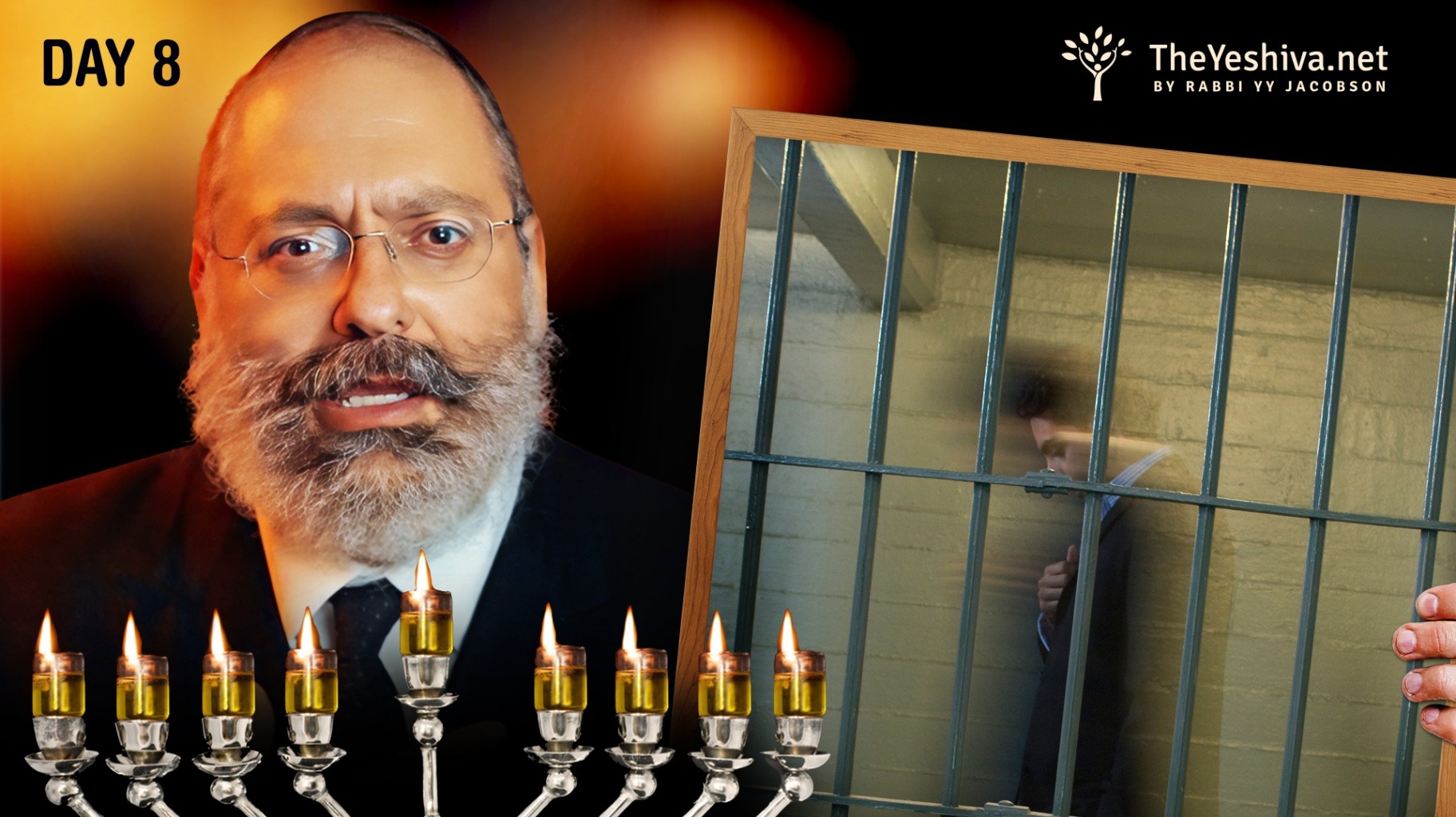
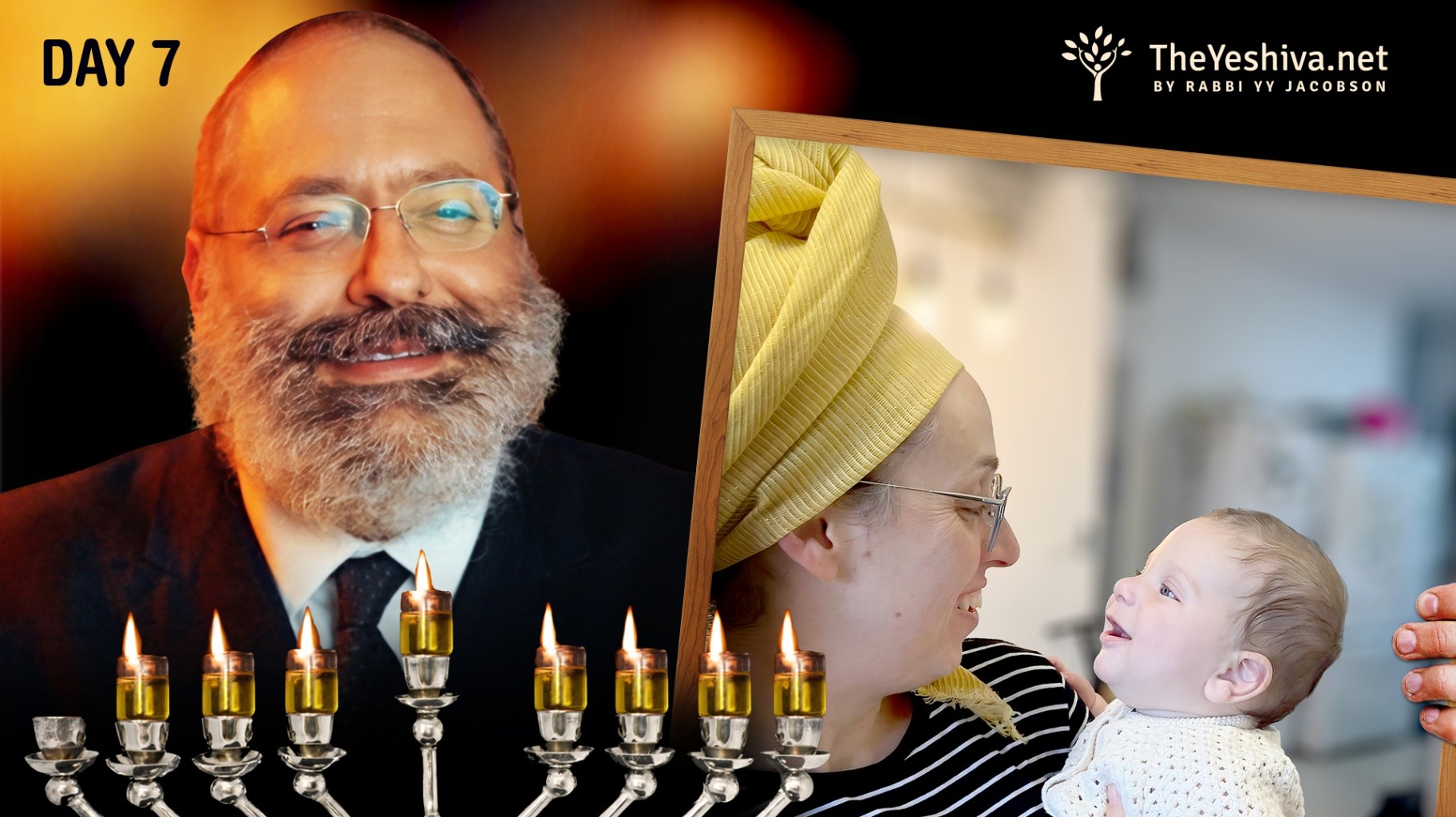
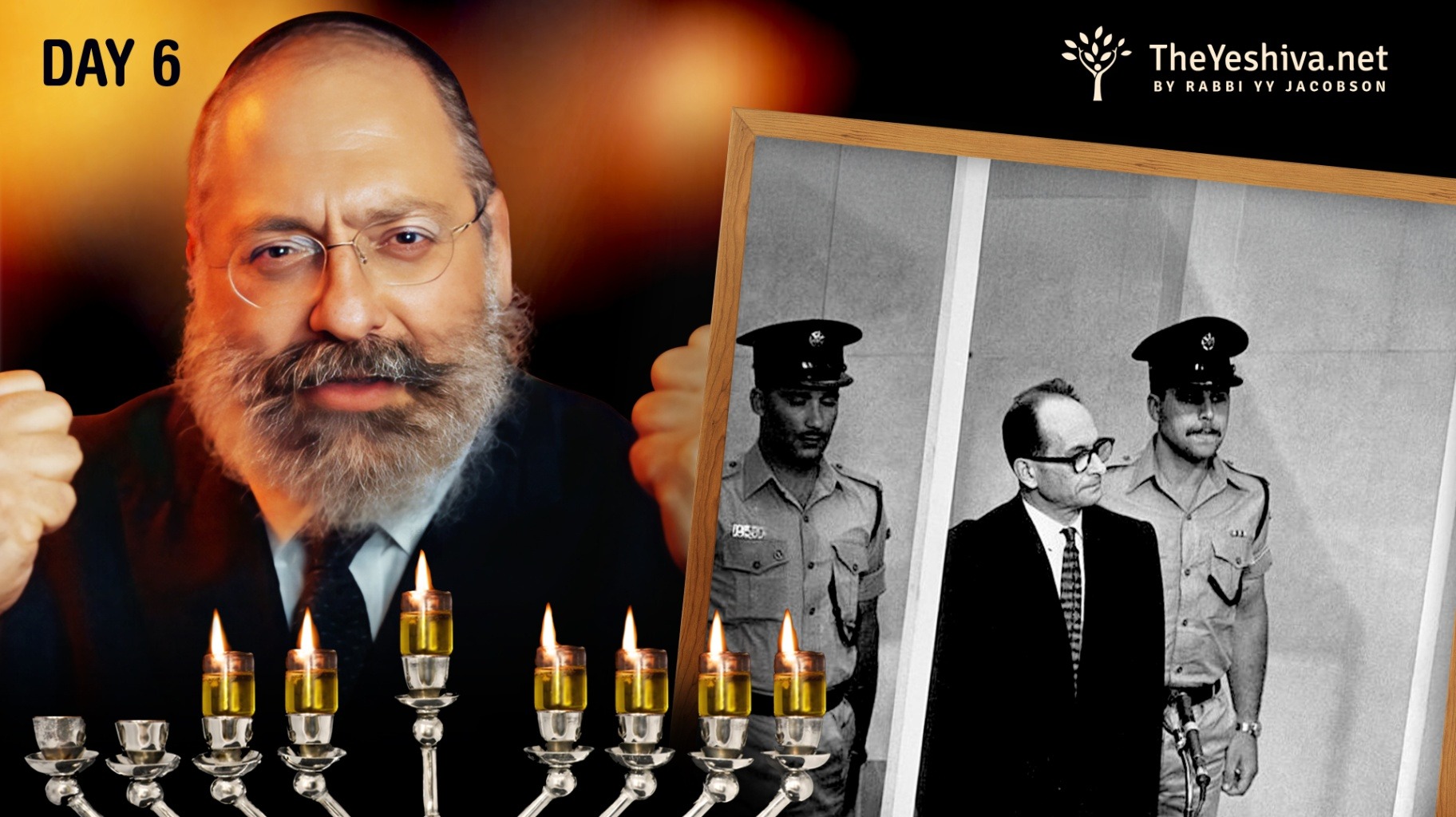
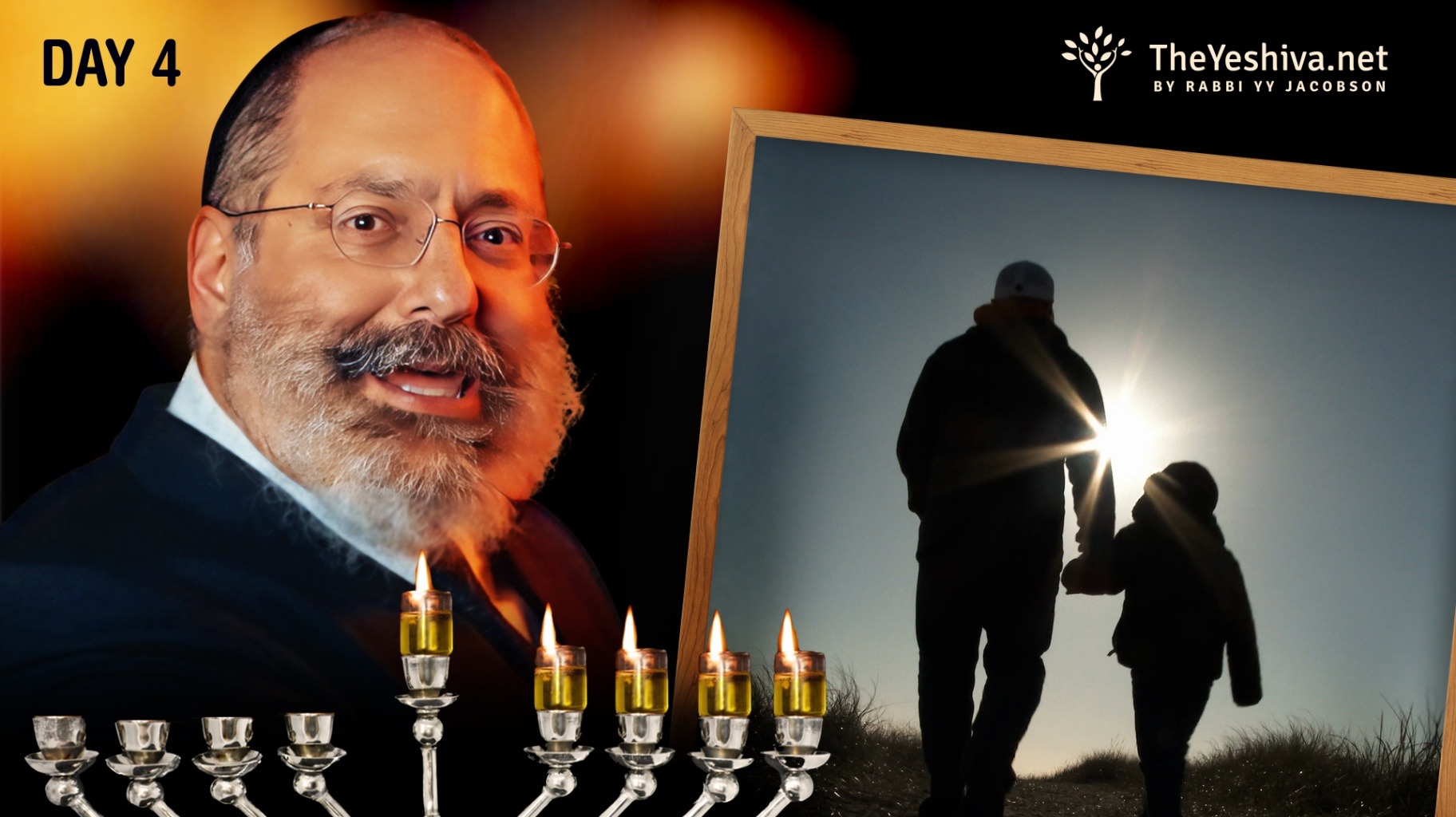
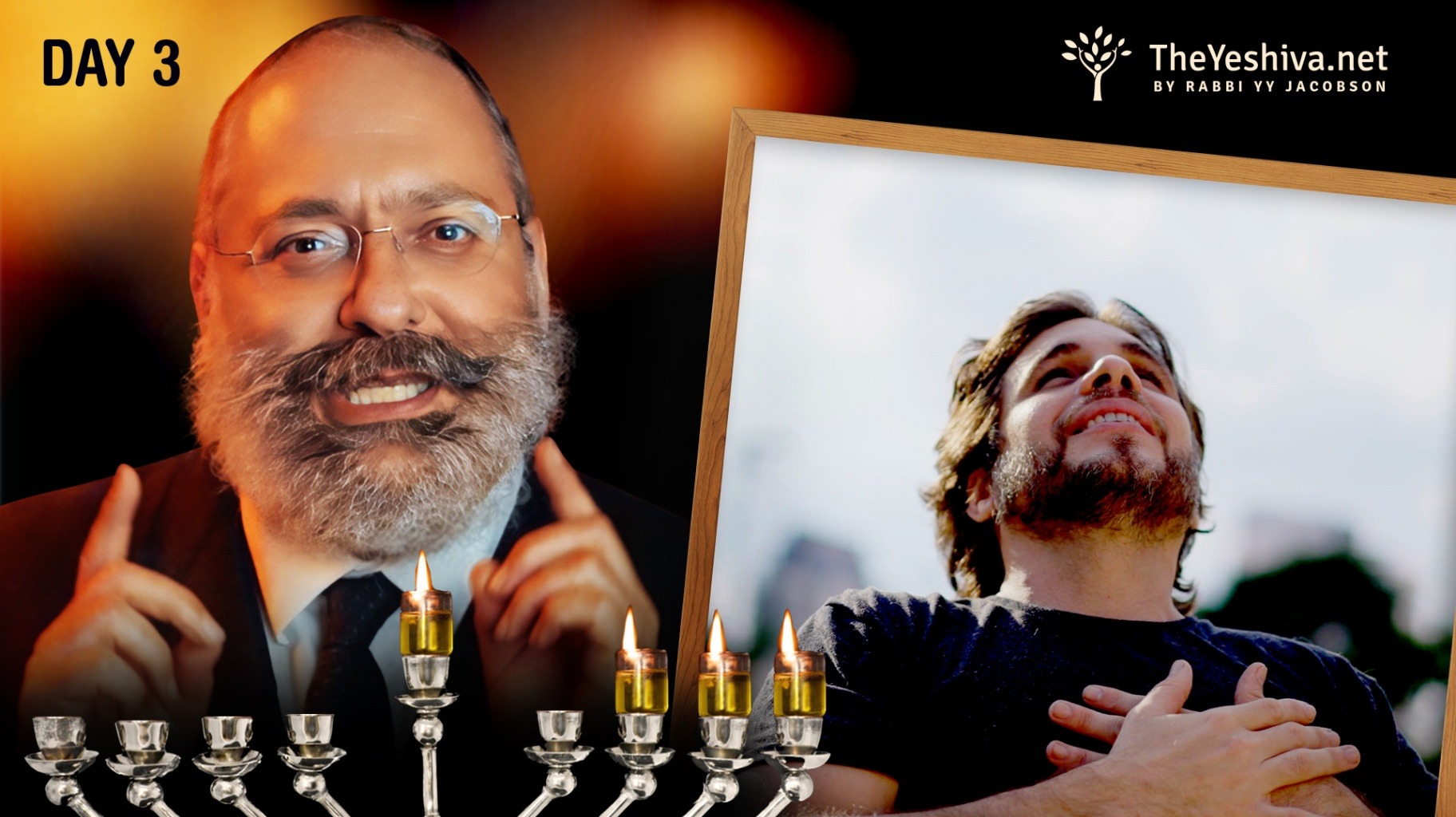
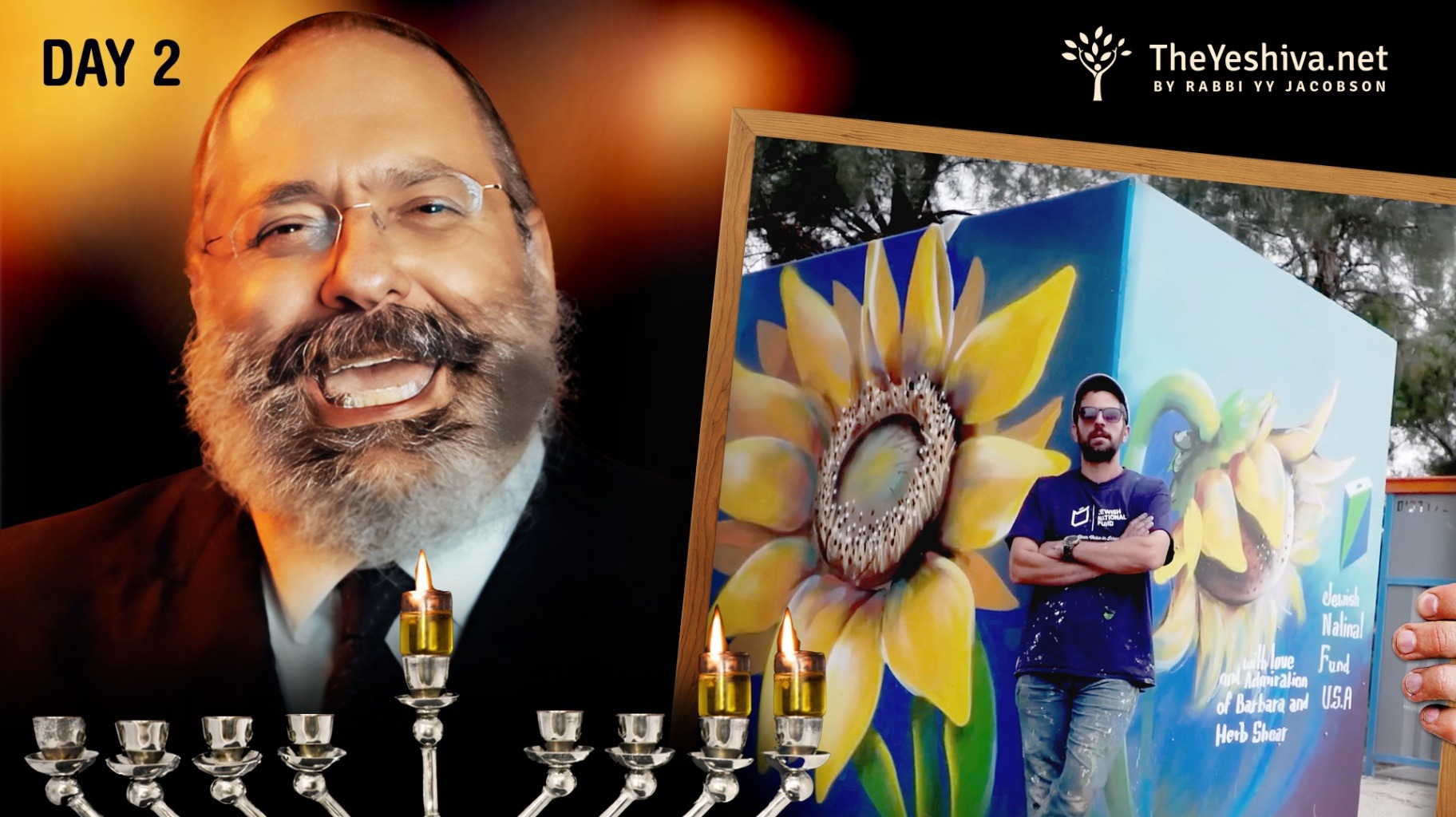
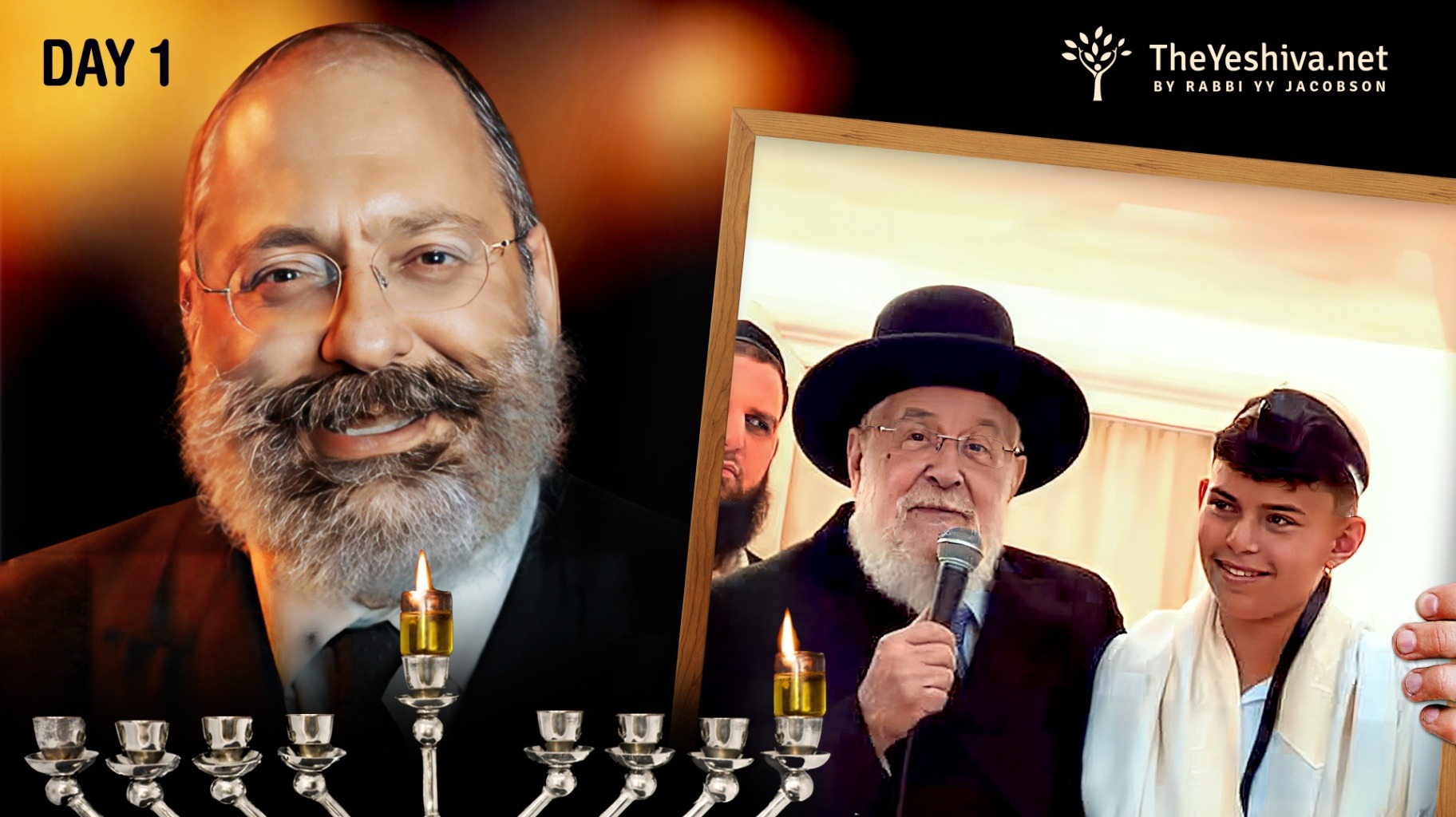
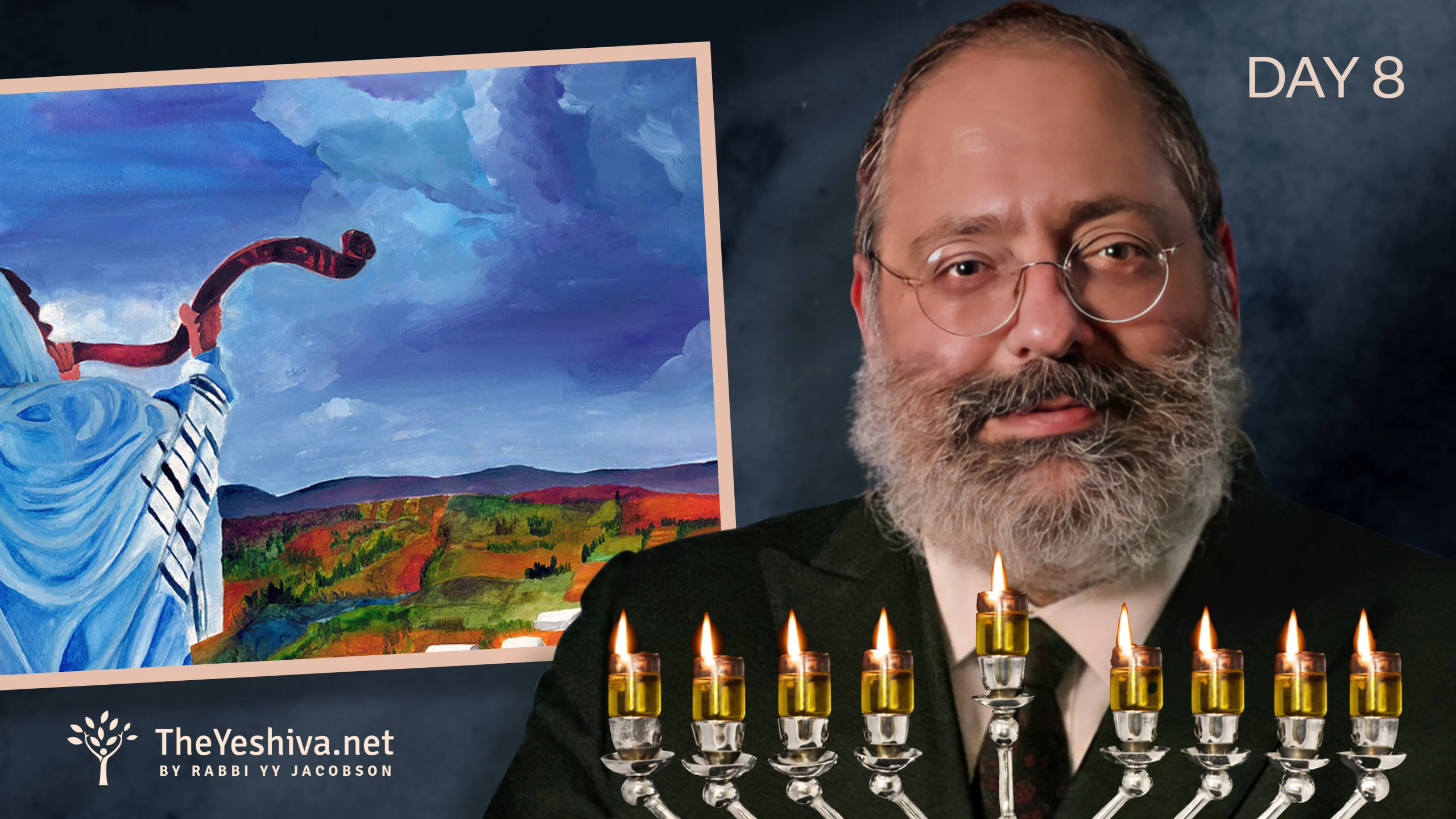
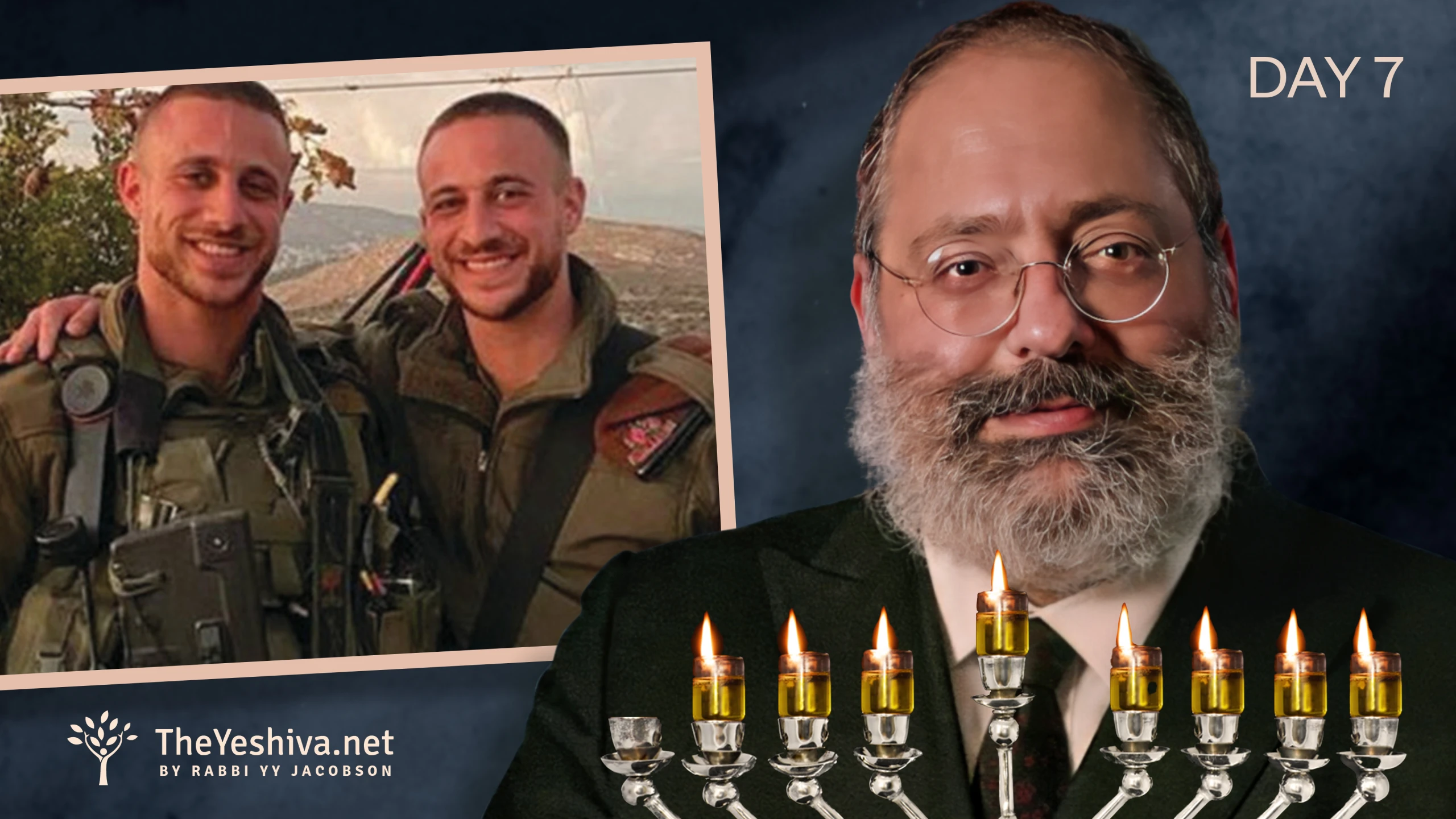
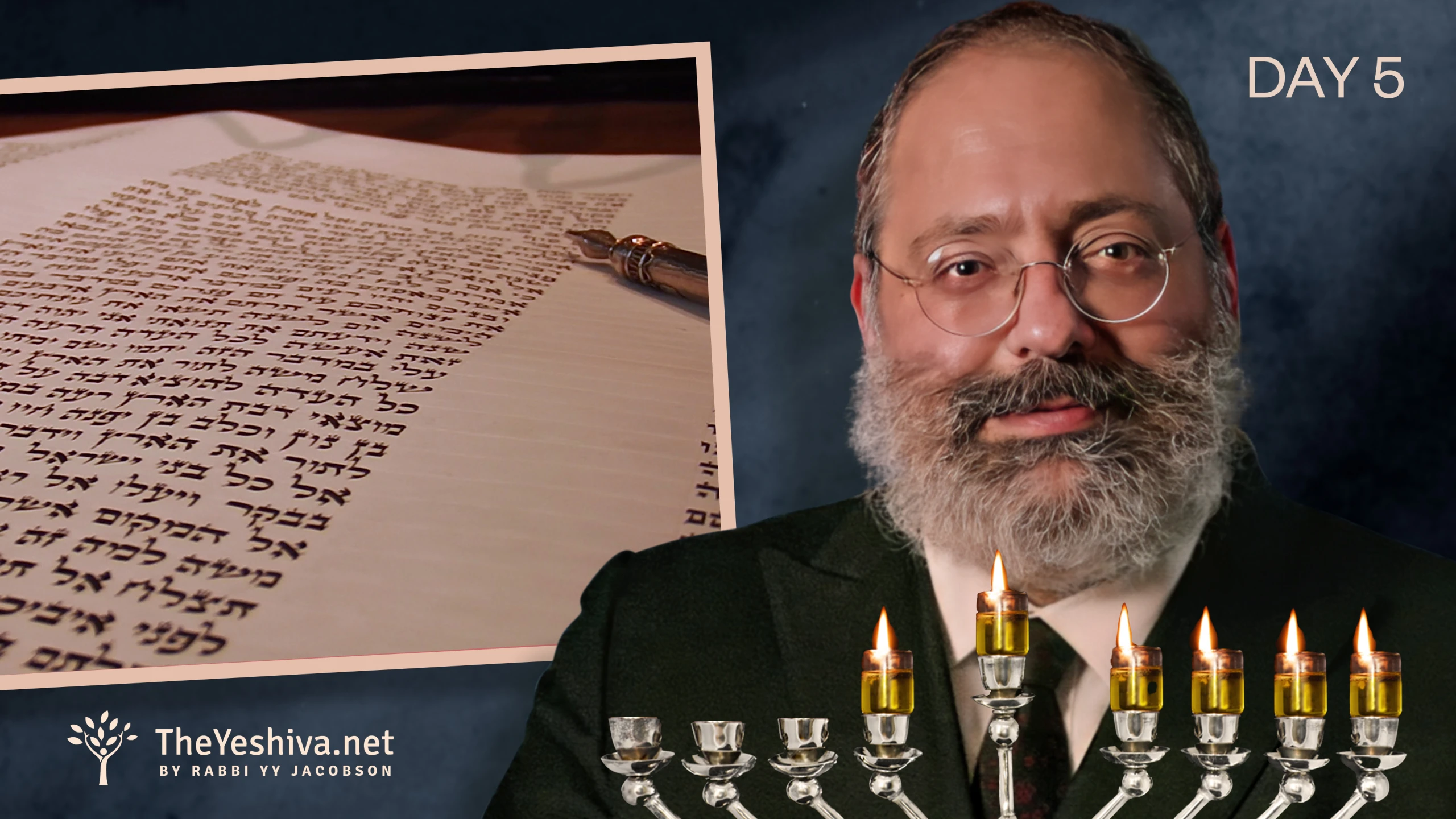
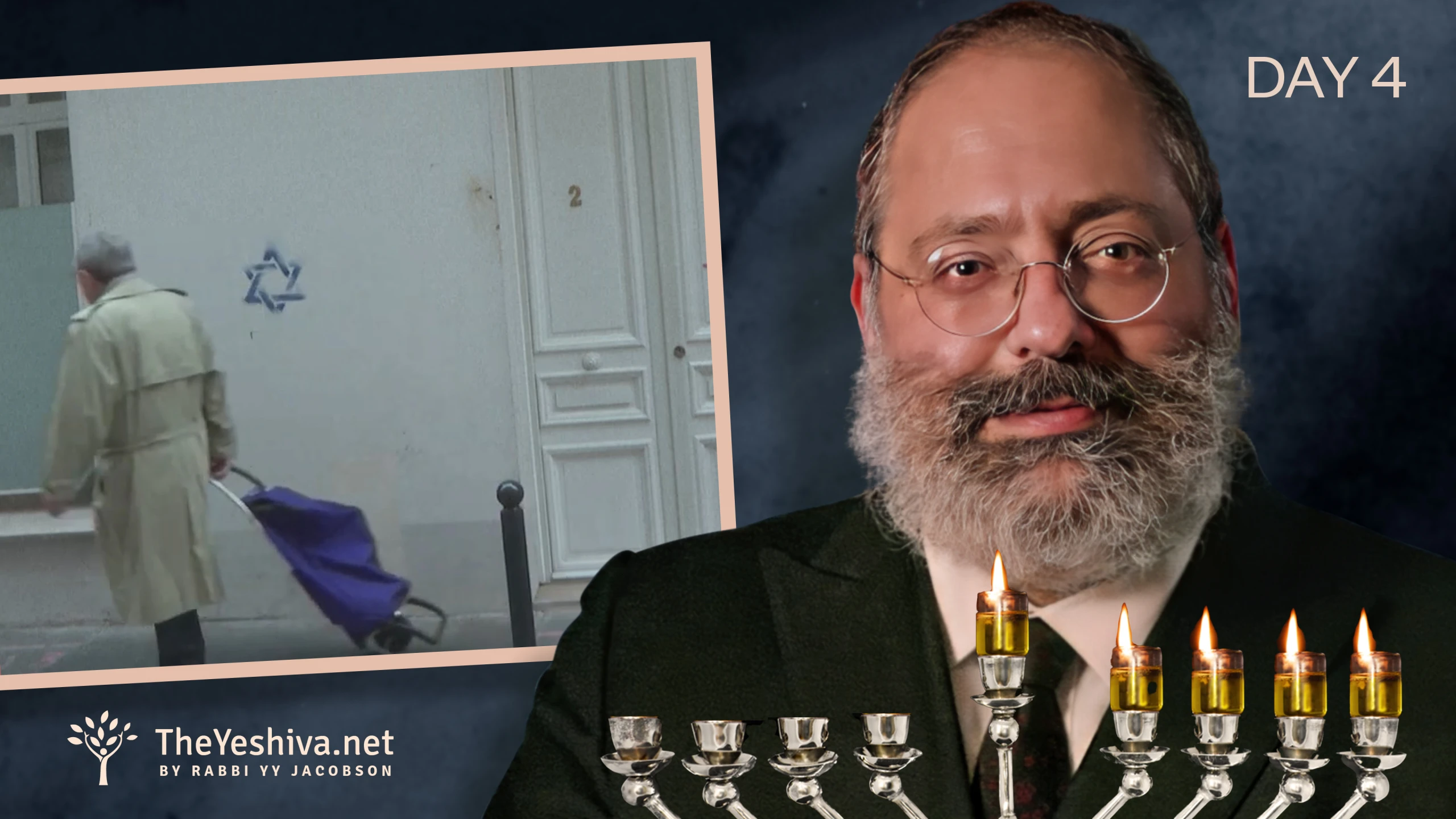
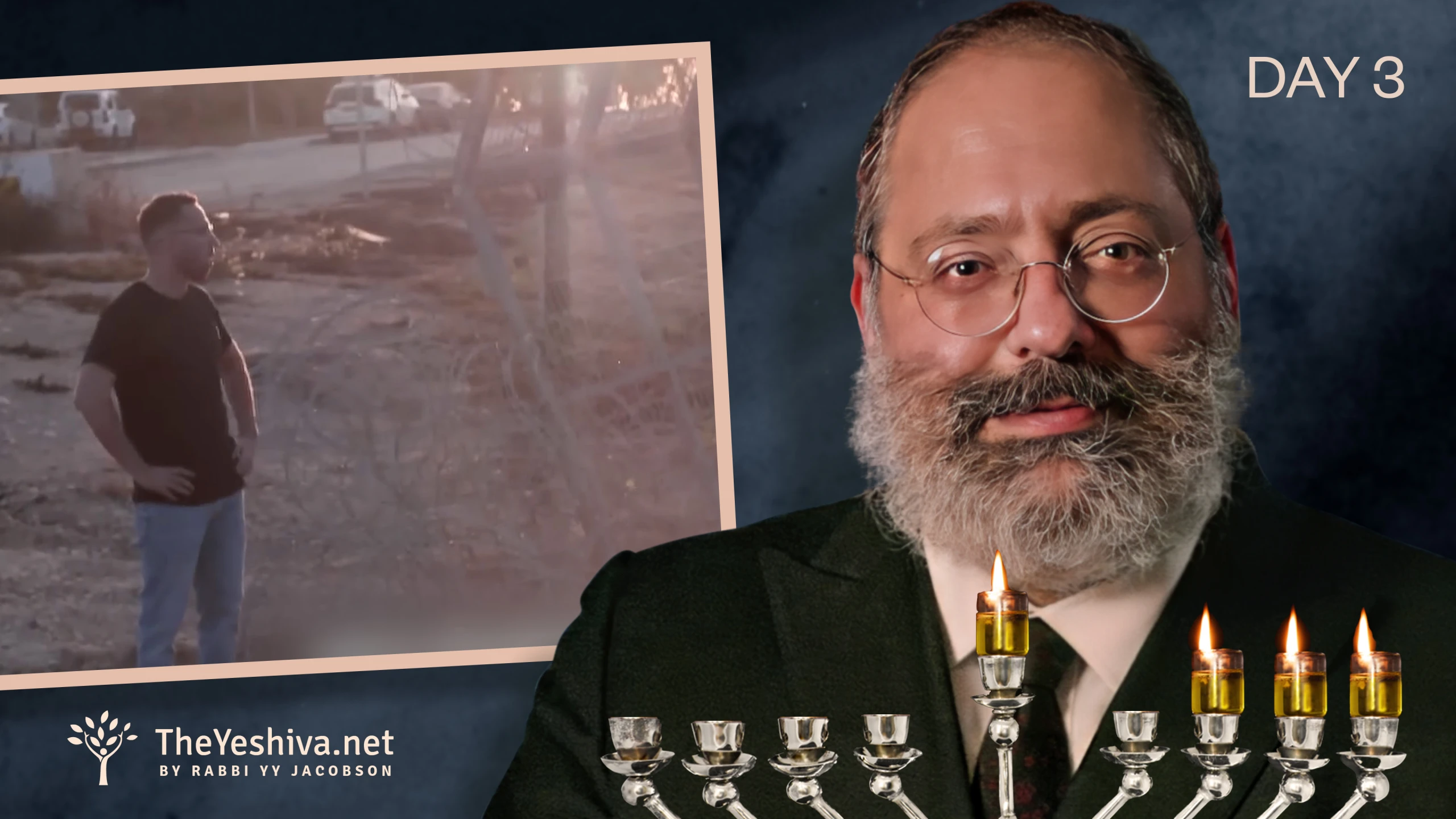
Please leave your comment below!
Anonymous -2 years ago
published in Igros Kodesh vol. 2 page 316
mistake should be page 279
Reply to this comment.Flag this comment.
des branagh -8 years ago
The oil that penetrates deep through the flesh to heal our brokenness to bring us wisdom which is not the same as knowledge Which lights our path to deliver us from evil How lovely is this oil and how life giving Bless G-D
Reply to this comment.Flag this comment.
Anonymous -7 years ago
gross
Reply to this comment.Flag this comment.